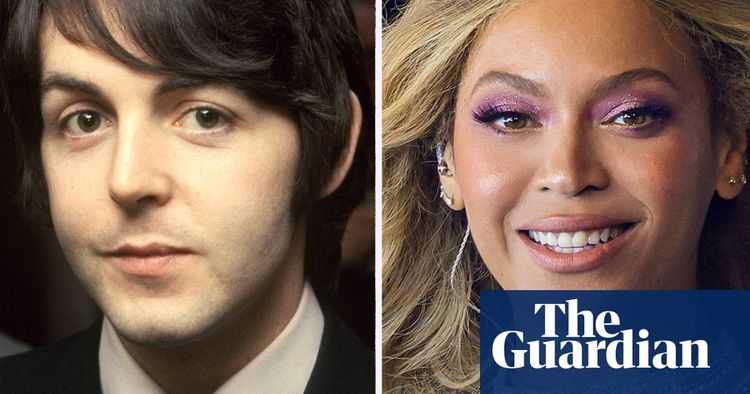A new moment to arise: Beyoncé’s cover of the Beatles’ Blackbird is a timely masterstroke

This blog post discusses how the song Blackbird, written by Paul McCartney for the Beatles in 1968, has resurfaced on Beyoncé's new album, but with a different spelling - Blackbiird. Despite its seemingly innocent title, Blackbird is actually a song that tackles important topics such as civil rights and female empowerment. It fits perfectly on Beyoncé's new country album, Cowboy Carter, and shows how the themes of the song still resonate with audiences today. While some may have mistaken the song as being about a bird singing in the night, the lyrics have a much deeper meaning that won't be lost on Beyoncé's fans.
In honor of the Little Rock Nine, a brave group of students who were subjected to racial discrimination when they enrolled in an all-white high school in 1957, Paul McCartney wrote a tribute song. This event gained national attention and was a significant case for the Supreme Court decision on Brown v Board of Education, which declared segregation in schools unconstitutional. Governor Orval Faubus of Arkansas disagreed with the ruling and even sent in the National Guard to prevent the students from attending the school. However, with the intervention of federal troops to escort the Little Rock Nine onto the premises, the Civil Rights Movement had nine new heroes, and the world took notice – this included Paul McCartney.
The origin of the song can be traced back to the Beatles' famous visit to Rishikesh, India, where they were learning about transcendental meditation. McCartney has revealed that he was once inspired by the sound of a blackbird one morning. After returning home to his farm in Scotland, he started developing the idea using the chord progressions from Bach's Bourrée in E Minor, a song he and George Harrison had both learned as children. This all took place while McCartney played an acoustic guitar in his kitchen.
In 2018, while speaking to GQ magazine, the individual shared their inspiration for writing the song Blackbird. They had learned about the difficulties regarding civil rights during the 1960s, specifically in Alabama, Mississippi, and Little Rock. Wanting to make a positive impact, they decided to write a piece that could offer hope to those facing those struggles. Consequently, Blackbird was born.
This blog was written a few weeks after Martin Luther King was murdered. The lyrics of the song have a lot of metaphors and symbols, especially at the start. McCartney spoke to GQ and explained that "bird" was slang for girl in the 1960s. He thought about a Black girl who had been held back but now had the chance to be free and fly high, like a bird with broken wings that can soar. The line "all your life, you were only waiting for this moment to be free" could also be a reference to the Little Rock students who fought for their rights. John Lennon claimed he contributed one important line to the song before he died, but nobody knows what it was.
Paul McCartney spent 32 takes to perfect the recording of "Blackbird". The final version included the sound of blackbirds from a special tape and featured McCartney playing the guitar and tapping his foot. In 2016, during a concert in Little Rock, Arkansas, McCartney had the opportunity to meet Thelma Mothershed-Wair and Elizabeth Eckford, two of the students who were part of the "Little Rock Nine", who were pioneers of the civil rights movement. McCartney was amazed and inspired by meeting them, and he tweeted about it, mentioning how they were the inspiration for the song "Blackbird".
Although many artists have covered Blackbird, Beyoncé's version stands out. While Billy Preston, Sarah McLachlan, Crosby, Stills & Nash, the Dandy Warhols, and Dave Grohl have all taken a shot at the song, Beyoncé's rendition has a particular significance. She infuses her interpretation with spirituality and subtle strings, and she prominently features Black American country stars like Brittney Spencer, Tanner Adell, Tiera Kennedy, and Reyna Roberts. These musicians typically struggle to make headway in Nashville's gatekept music establishment, where women and Black artists often face marginalization. By introducing this song and its symbolic meaning to her large and predominantly youthful audience, Beyoncé has breathed new life into a timeless gem that remains relevant even today.





























































